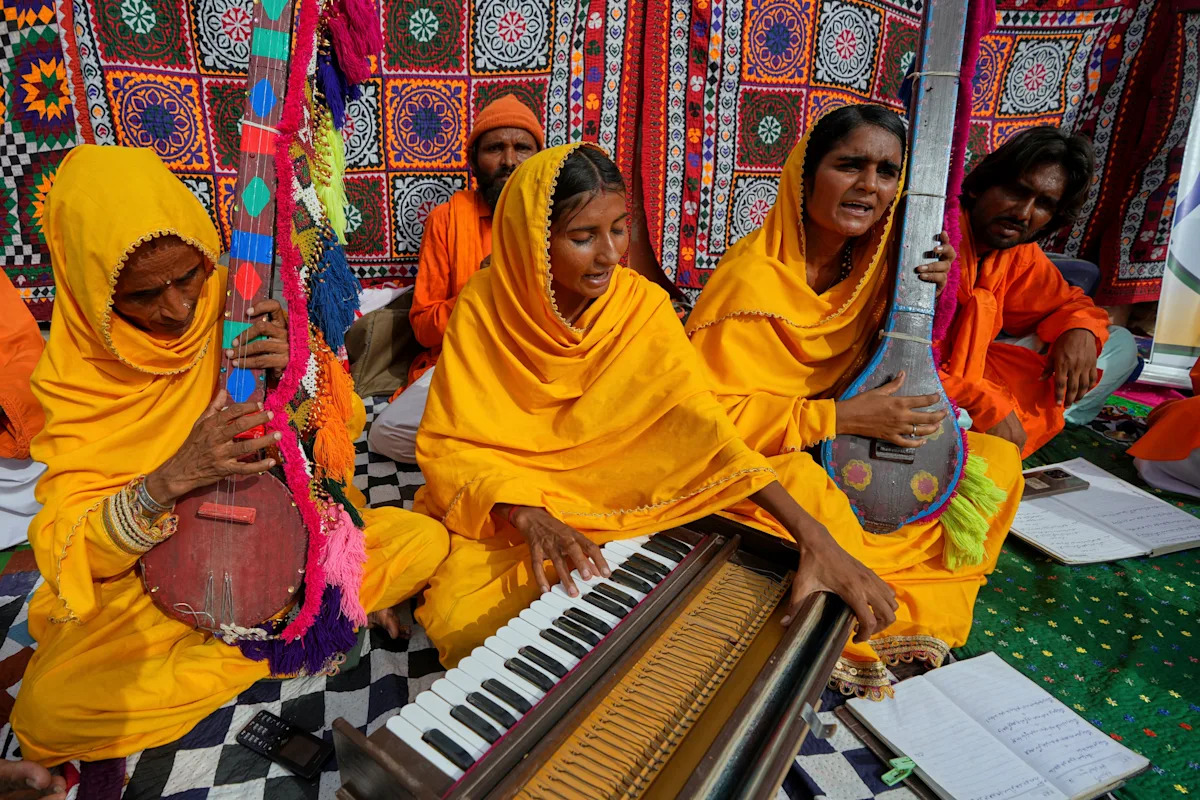In a bold effort to raise awareness about climate change, Pakistani musicians are harnessing the power of folk songs and rap. In the villages of Sindh, singer Sham Bhai captivates audiences with lyrics that highlight the devastating impacts of climate change. Her songs resonate deeply with local communities, particularly in areas like Umerkot, which have suffered from severe flooding in recent years.
Sham, hailing from the Sindh province, where catastrophic floods in 2022 displaced millions, uses her platform to educate villagers about climate adaptation. “We are the people of the south,” her lyrics begin, capturing the essence of her community’s struggles as she sings in her native Sindhi. The region, marked by its low literacy rates—only 38% in rural areas—relies on songs as a medium for communication, making complex ideas more accessible.
During her performances, Sham addresses the harsh realities faced by poor communities. “The meaning of the song is that poor people’s homes built on mud are not strong,” she explains. Her message emphasizes the vulnerability of women and children during extreme weather events, as they often bear the brunt of the fallout while men are away working.
Sham’s initiative is part of a broader movement in Sindh to adapt to changing climatic conditions. Local farmers like Ghulam Mustafa Mahar have shifted their agricultural practices due to unpredictable monsoon patterns. “The monsoon season used to come on time, but now it starts late,” he said. Many have turned to livestock farming as a more reliable source of income, reflecting the urgent need for resilience strategies.
Rapping for Climate Justice
In addition to folk music, rap is emerging as a powerful tool for climate advocacy in Pakistan. Activist Urooj Fatima, known as Sindhi Chhokri, combines her passion for social justice with climate awareness through her music. Following the devastating floods that impacted her village in both 2022 and 2024, she recognized the necessity of addressing climate change in her community.
“Through rap, we can reach out to hundreds of thousands of people,” Urooj states, emphasizing the genre’s potential to engage broader audiences. Although hip-hop is not widely recognized in Pakistan, its roots in storytelling resonate with local experiences of hardship and struggle. Urooj’s lyrics not only reflect the urgent need for climate action but also challenge the status quo, calling out government inaction: “Where was the Balochistan government when the floods came?”
Her activism extends beyond performance; she actively plants trees and engages in community outreach, urging the Sindh government to prioritize climate education for rural residents. Urooj highlights the disproportionate impact of climate change on women and girls, who face unique challenges related to displacement, education, and nutrition. “For women, there are no opportunities or facilities,” she notes, pointing out that entrenched gender inequalities exacerbate the effects of climate disasters.
Despite facing backlash for addressing social taboos, Urooj remains committed to her mission. “Rap is a powerful platform,” she asserts. “We will not let our voices be suppressed.” Her determination underscores the vital role of music in fostering awareness and mobilizing communities to confront the realities of climate change.
The efforts of Sham and Urooj illustrate how art can serve as a catalyst for change in communities grappling with the effects of climate change. Their unique blend of folk and rap music not only entertains but also educates, empowering people to adapt and respond to an increasingly unpredictable environment. As these artists continue to tour villages across Sindh, they are not just singing; they are igniting a movement for a more resilient future.







































































